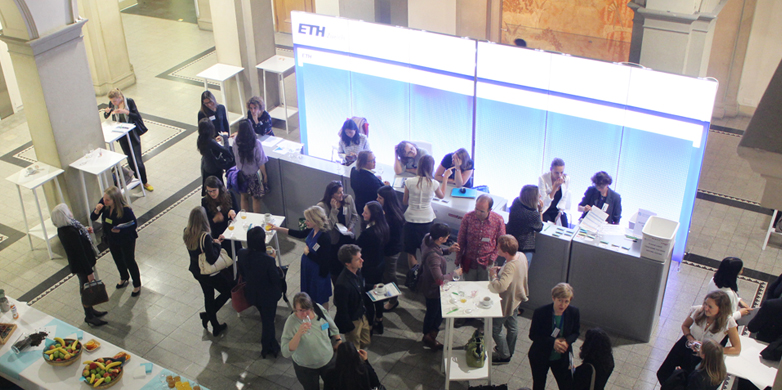Reconciling two careers
When researchers from abroad move to ETH Zurich, their partners often try to find a new job in Switzerland as well. In order to be able to help them more with their job search, ETH Zurich has recently joined the International Dual Career Network (IDCN).
New employees rarely come to ETH Zurich alone: they often bring their whole family with them. Especially for researchers from abroad, this presents the challenge that not only do they have to familiarise themselves with their new jobs and get to know the country, but their partners also need to establish themselves in Switzerland as quickly as possible. This generally also involves a new job. ETH Zurich set up the Dual Career Advice Office within the Office for Faculty Affairs 16 years ago in order to help professors and their families – especially those coming from abroad – to settle into life in Switzerland. Scientific staff are also supported by the Human Resources department.
Nevertheless, sometimes the existing services were not adequate: "If the partner does not work in the academic sphere, we are often unable to help," admits Madeleine Lüthy, Head of the Dual Career Advice Office. She is hoping to work with the university's HR department to improve this situation. Of the approximately 11,000 members of the university, 52% come from abroad, which is one of the reasons ETH Zurich joined the International Dual Career Network (IDCN) a few months ago on the initiative of the ETH Dual Career Advice Office
How the International Dual Career Network works
The IDCN operates worldwide with support from various companies and institutions in each particular location. If the partners of employees of the member companies are looking for work, they receive help from the IDCN with finding a job. Five times a year, IDCN and the companies invite people to events where job-hunters can meet potential employers and talk to members of personnel departments. The programme also includes workshops and presentations.
The IDCN itself is organised as an association for which people looking for jobs can work as volunteers. This can be a way of getting to know a new country and making their first contacts. "Both the companies and the job-seekers benefit from our network," explains Andrea Drietomska, Chair of the IDCN Partners Committee. "The companies meet qualified job applicants, and applicants in turn get access to potential employers."
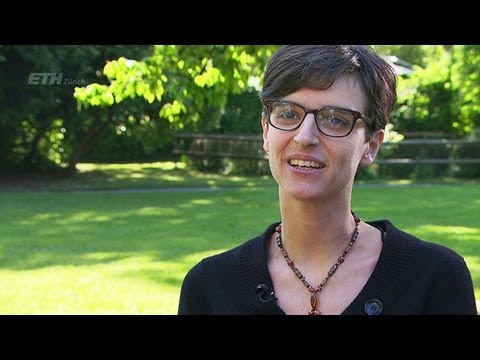
Partners looking for jobs
ETH Zurich hosted an IDCN event for the first time on 30 April, working with the Swiss chocolate-maker Barry Callebaut to welcome about 70 participants to the Audimax hall. A platform discussion involving members of ETH Zurich and their families showed just how important the subject of dual careers has become today.
During the discussion, doctoral student Gina Garland and postdoc Charlotte Decock talked about the career problems experienced by their partners. Both women had been recruited as researchers in the Department of Environmental Systems Science. "My husband had taken a Master's in City Planning in the US, but it didn't help him to find a job here in Zurich," says Garland. It was only thanks to her doctoral supervisor getting involved, she says, that her husband was eventually employed as a technician in the Institute of Agricultural Sciences.
The husband of Charlotte Decock, from Belgium, had to face similar difficulties at first. "My husband is German, so he knew the language, but his American Bachelor's degree in sociology was not recognised," said Decock. Even his professional experience as a social worker in the US was hardly any help. Only after initially working part-time on a trial basis did he finally, after two years, find a suitable job.
Not unless there's a job for my wife
Things were a little easier for Aimee Shreck. Madeleine Lüthy was able to help her directly when her husband was appointed as a professor at ETH Zurich. Shreck, from California, has a doctorate in sociology and had worked for a trade union in her home country. She could not imagine being a housewife. Today she works as a communications manager at the ETH World Food System Center – a job which was arranged by the Dual Career Advice Office.
Professor Renate Schubert, the ETH Zurich President's Delegate for Equal Opportunities, also agrees: "The aspect of dual careers is increasingly important nowadays when high-profile researchers are being appointed." More and more examples of dual careers are being seen in academia. Every year, there are on average 40 cases where the partner of a highly qualified scientist is looking for a professional post. ETH Zurich has a long tradition of finding good solutions for academics. By joining the IDCN, the university will now be able to offer modern and progressive career moves for non-academics as well.
Impressions of the IDCN Event at ETH Zurich
-
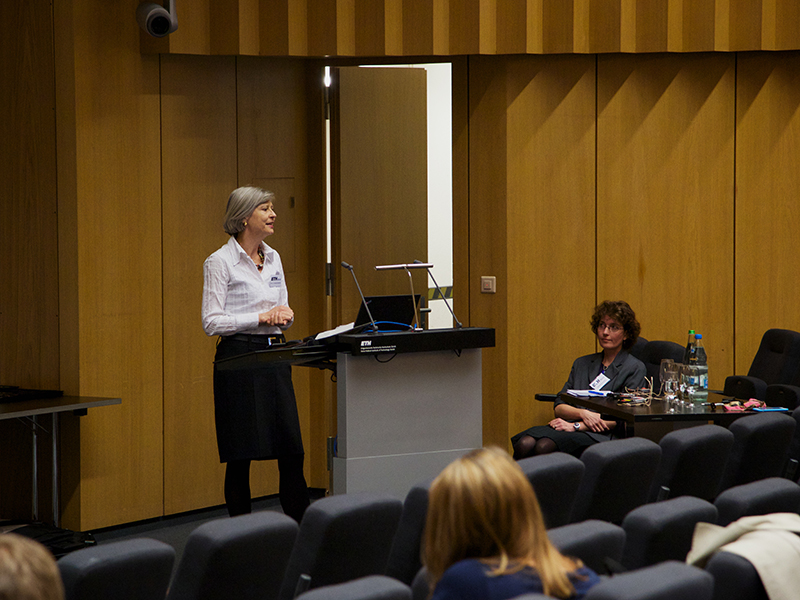
Renate Schubert, the President's Delegate for Equal Opportunities (left), emphasises how important the subject of dual careers is at ETH Zurich. Madeleine Lüthy, Head of the Dual Career Advice Office at ETH Zurich (right), listens attentively. (Photo: IDCN) -
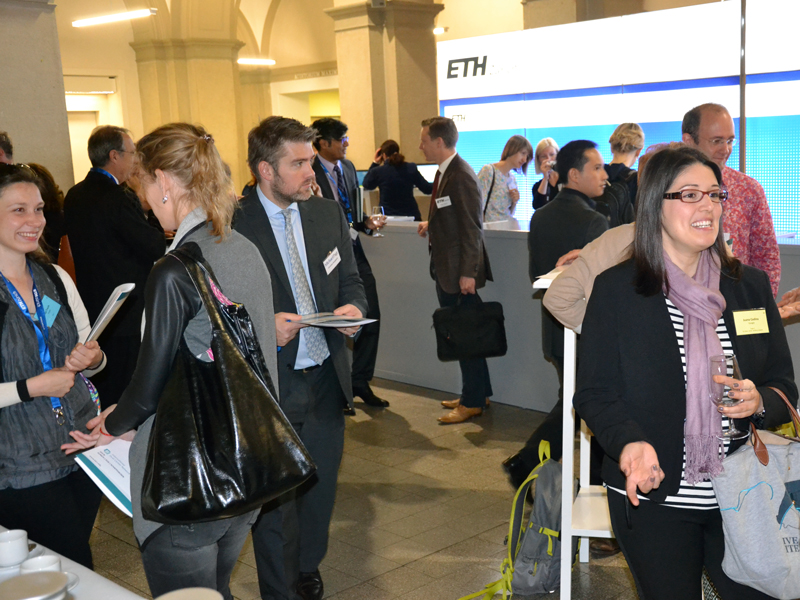
On 30 April 2015, numerous visitors attended the first IDCN event at ETH Zurich. (Photo: IDCN) -
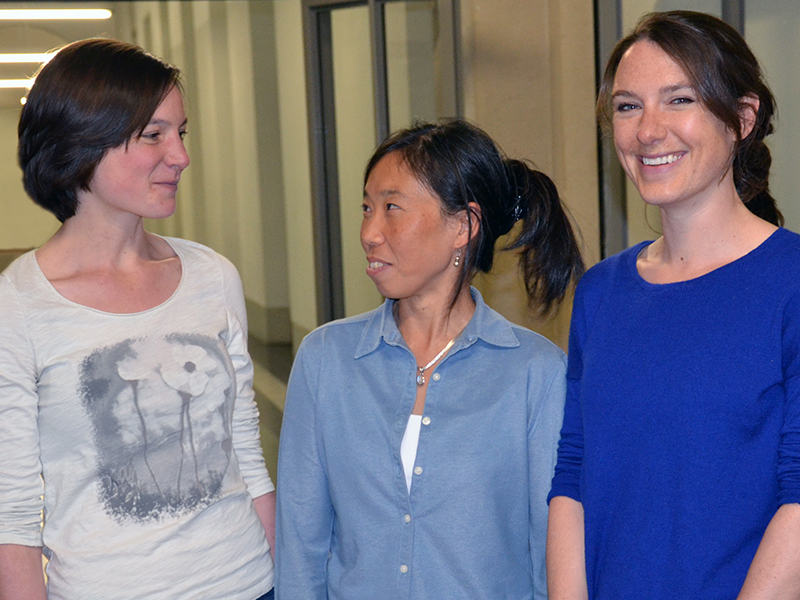
They know what it takes to pursue dual careers abroad: ETH employees Charlotte Decock, Aimee Shreck and Gina Garland. (Photo: Inken De Wit)

